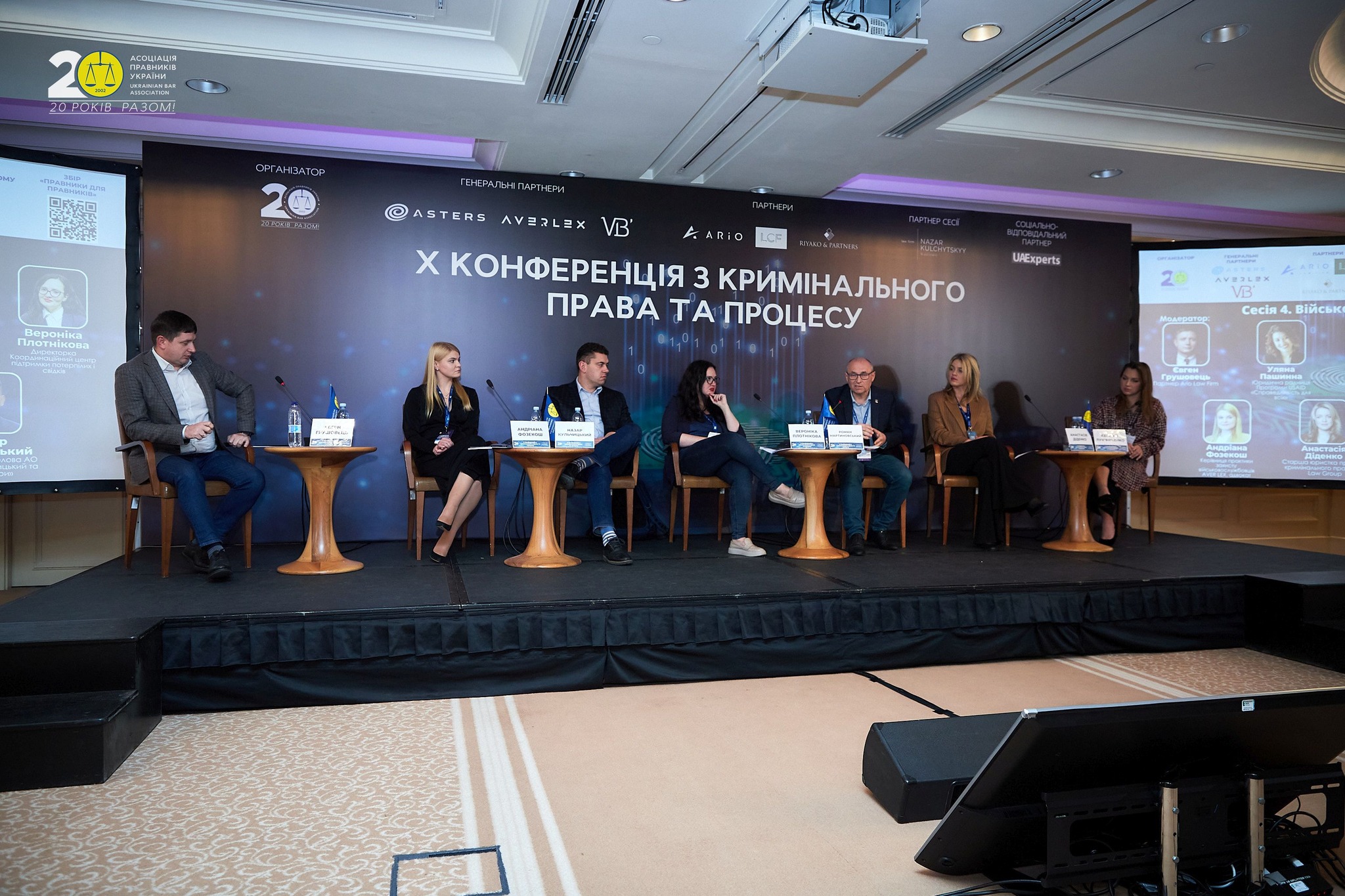UBA held X Criminal Law and Procedure Conference
The X Criminal Law and Procedure Conference, organized by the Ukrainian Bar Association, took place in Kyiv on October 19, 2023.
The event began with a welcoming speech from Mykola Stetsenko, UBA President, Managing Partner at AVELLUM. He emphasized that over the 10 years of conducting the Criminal Law and Procedure Conference, its level has significantly increased. Mr. Stetsenko also highlighted the current need to focus on the protection of rights in criminal law and procedure.
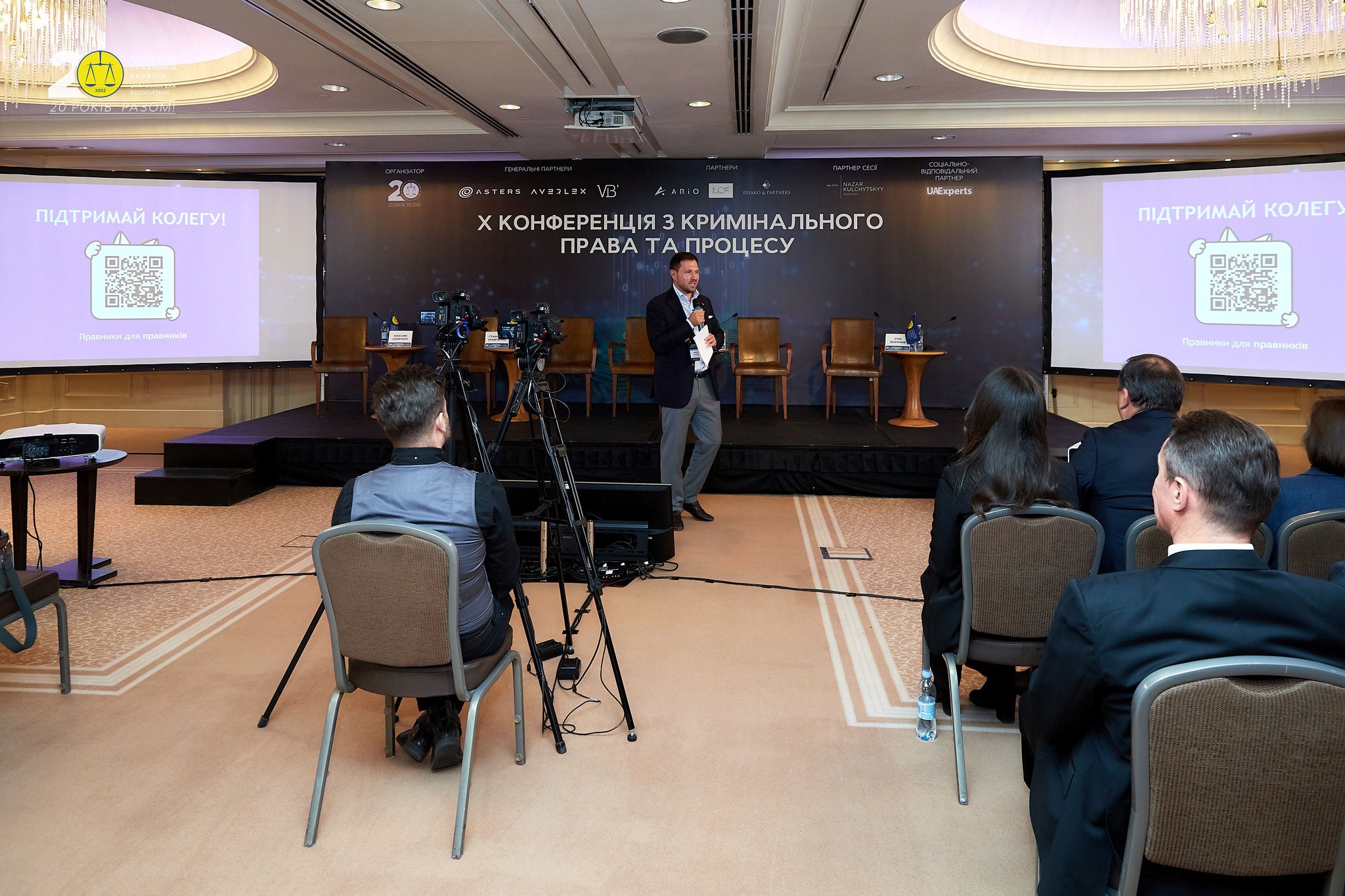
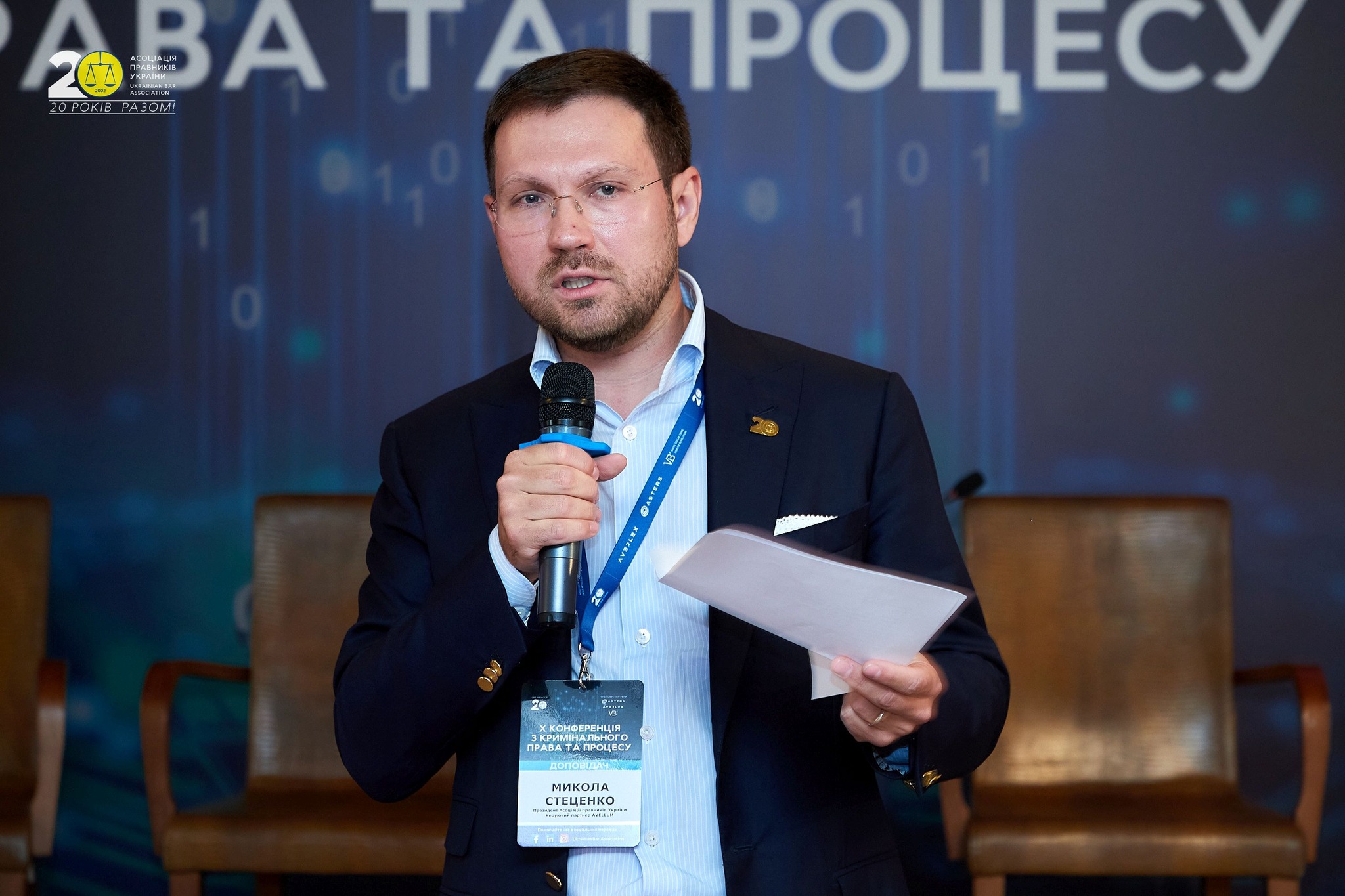
The first session of the conference was dedicated to current challenges in the field of criminal law. It was moderated by Maksym Sheverdin, Partner, head of the criminal law practice at LCF Law Group.
In his opening remarks, Mr. Sheverdin mentioned the challenges currently faced by the field of criminal law in Ukraine. He noted that the full-scale war has led to numerous changes in criminal and criminal procedural legislation. Since February 24, 2022, 17 amendments have been made to the Criminal Code of Ukraine, and over 20 to the Criminal Procedure Code.
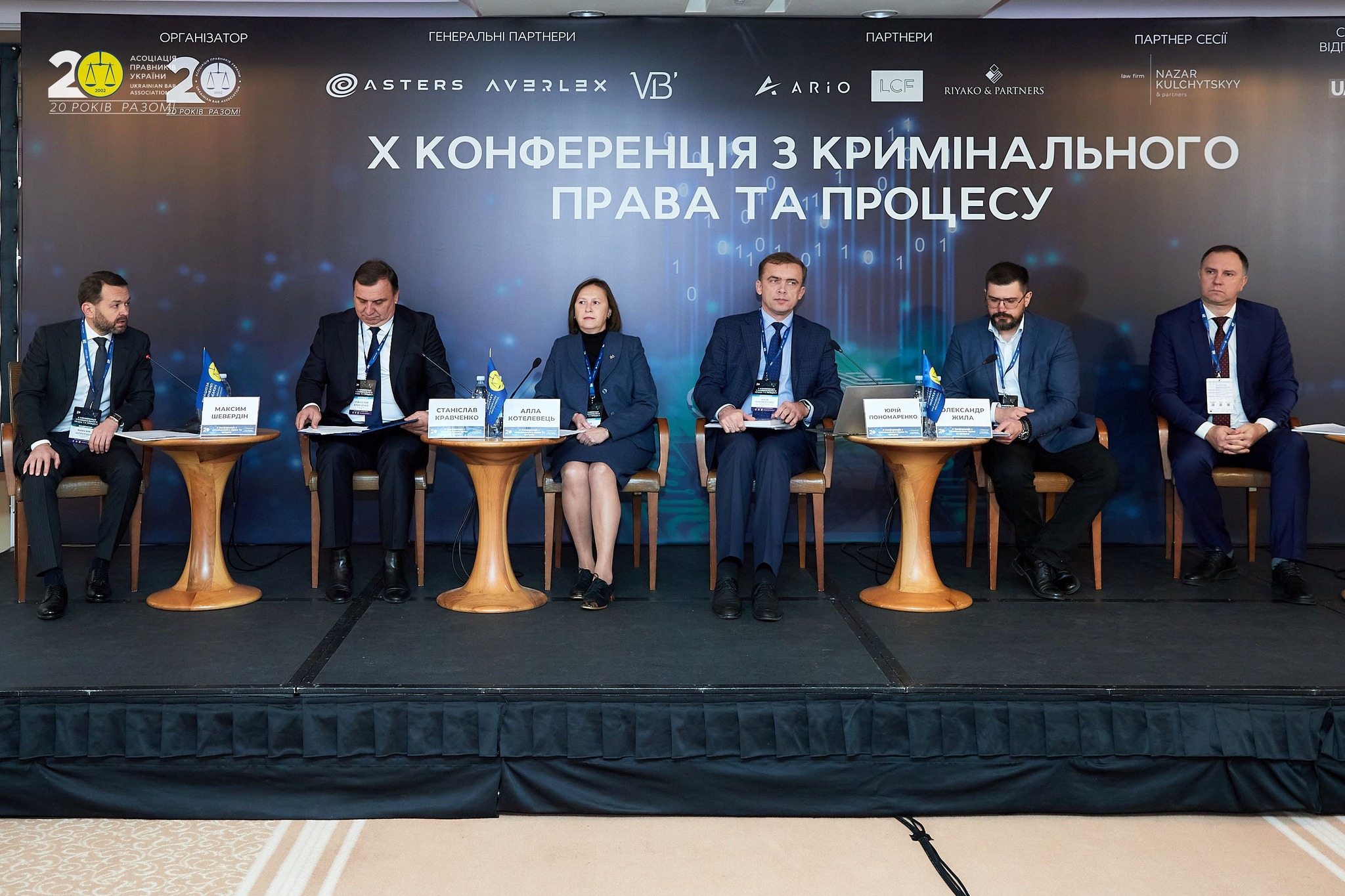
Stanislav Kravchenko, the Chairman of the Supreme Court of Ukraine, spoke about the challenges that the judiciary has faced since the full-scale Russian invasion. He stated that the Supreme Court is working to respond to existing challenges to ensure the unity of judicial practice.
Mr. Kravchenko also mentioned that the High Qualifications Commission of Judges and the High Council of Justice have resumed their activities during the ongoing large-scale war.
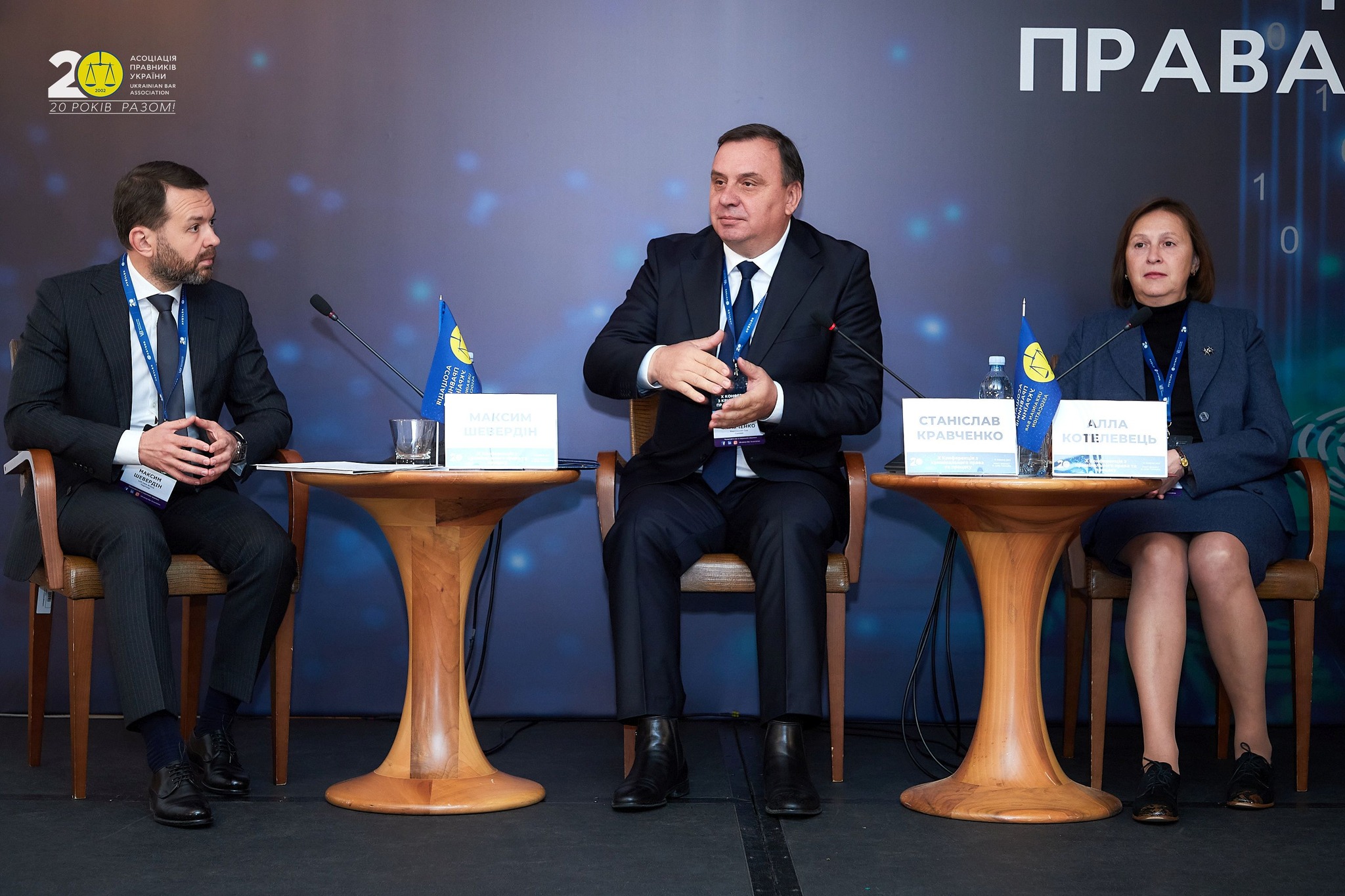
The Chairman of the Supreme Court also discussed changes and trends in criminal law related to the full-scale war. New articles, such as Article 111-1 "Collaboration Activities," have been added to the Criminal Code of Ukraine. There are nuances in the interpretation of Articles 437 ("Planning, Preparation, Initiation, and Conduct of Aggressive War") and 438 ("Violation of Laws and Customs of War") of the Criminal Code. The increased number of Armed Forces of Ukraine has led to an increase in military crimes, and courts, when considering cases related to these facts, face challenges in applying relevant articles of the Criminal Code.
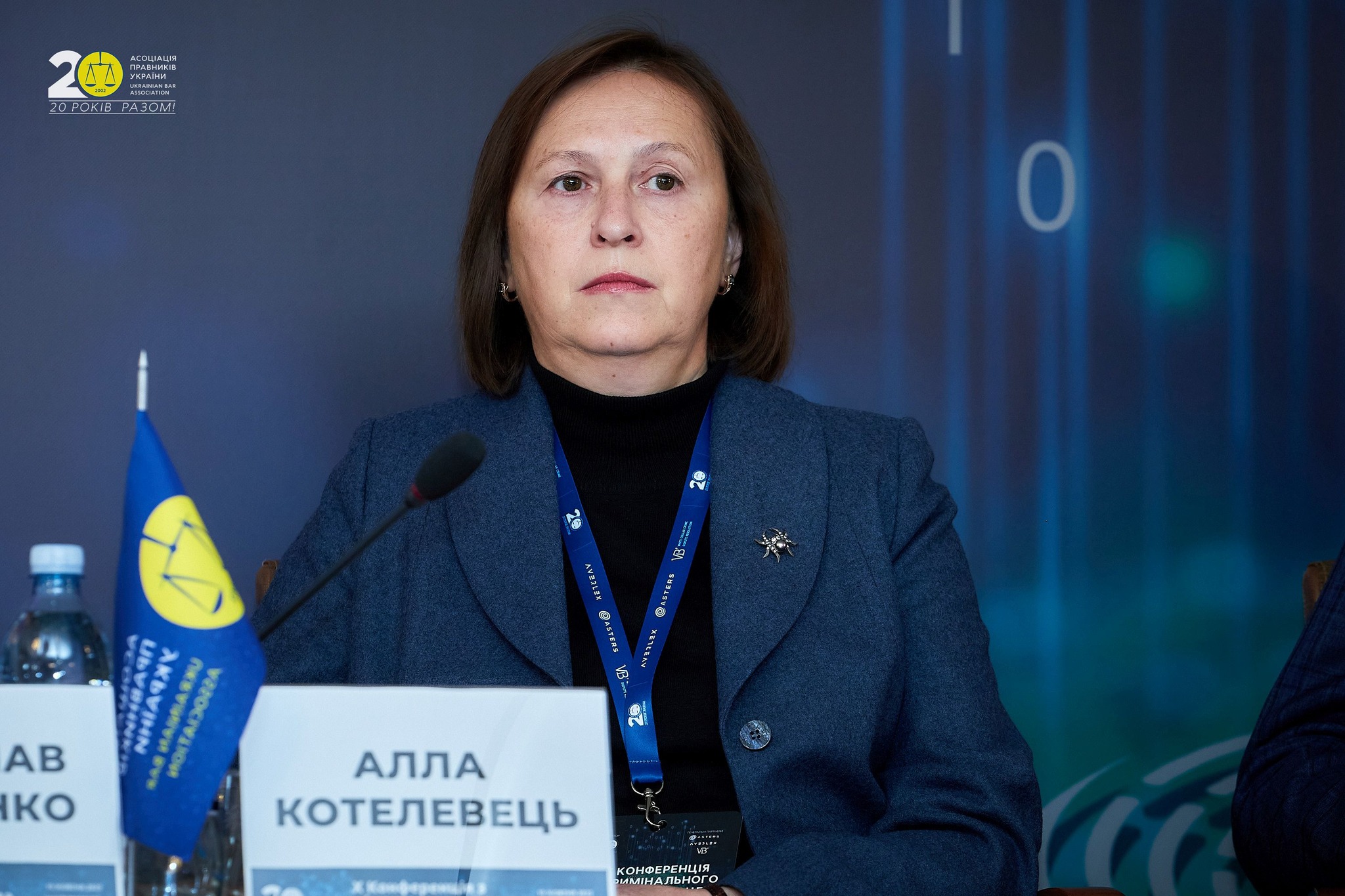
Alla Kotelevets, a member of the High Council of Justice, presented the view of the Council on holding judges criminally responsible in her speech.
Yurii Ponomarenko, Head of the Department of Criminal Law at the Yaroslav Mudryi National Law University, Doctor of Legal Sciences, provided insights into the project of the new Criminal Code of Ukraine. The working group, consisting of 11 members, worked on this project, which was published on October 14, 2023.
Mr. Ponomarenko noted that the project of the new Criminal Code is already completed and has undergone several expert reviews. He suggested that the Verkhovna Rada may need up to 2 years to adopt it. However, experts will request a deferral of the Code's entry into force for at least 2-3 years after adoption.
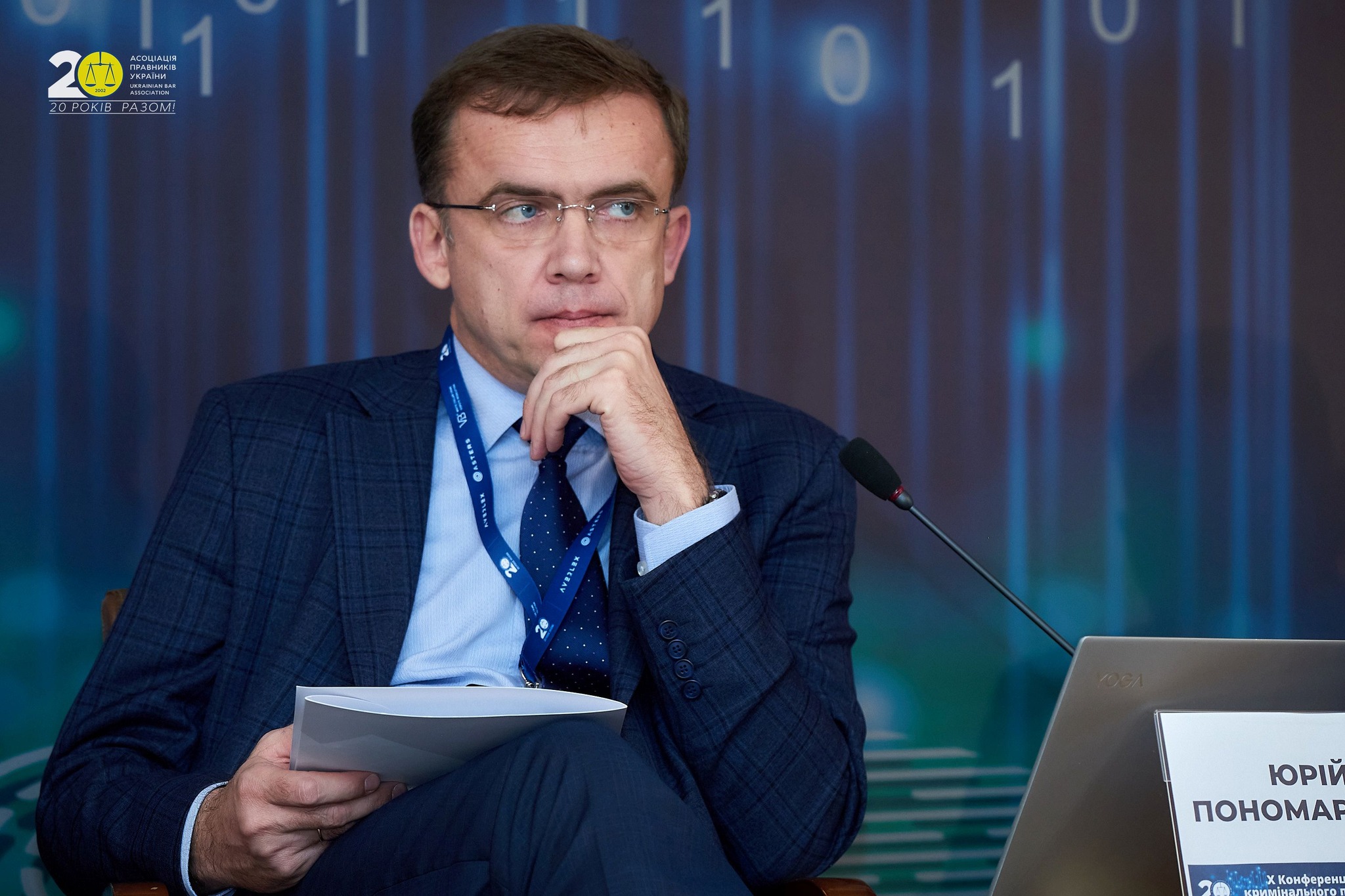
Speaking about the current Criminal Code of Ukraine, Yurii Ponomarenko pointed out that over 22 years of its existence, 262 laws amending the Code have been adopted. Often these changes were manipulative, poorly thought out, and politically motivated. As a result, the Criminal Code of Ukraine has transformed from the best criminal code in Europe into a fragmented document with numerous contradictions, emphasized the expert.
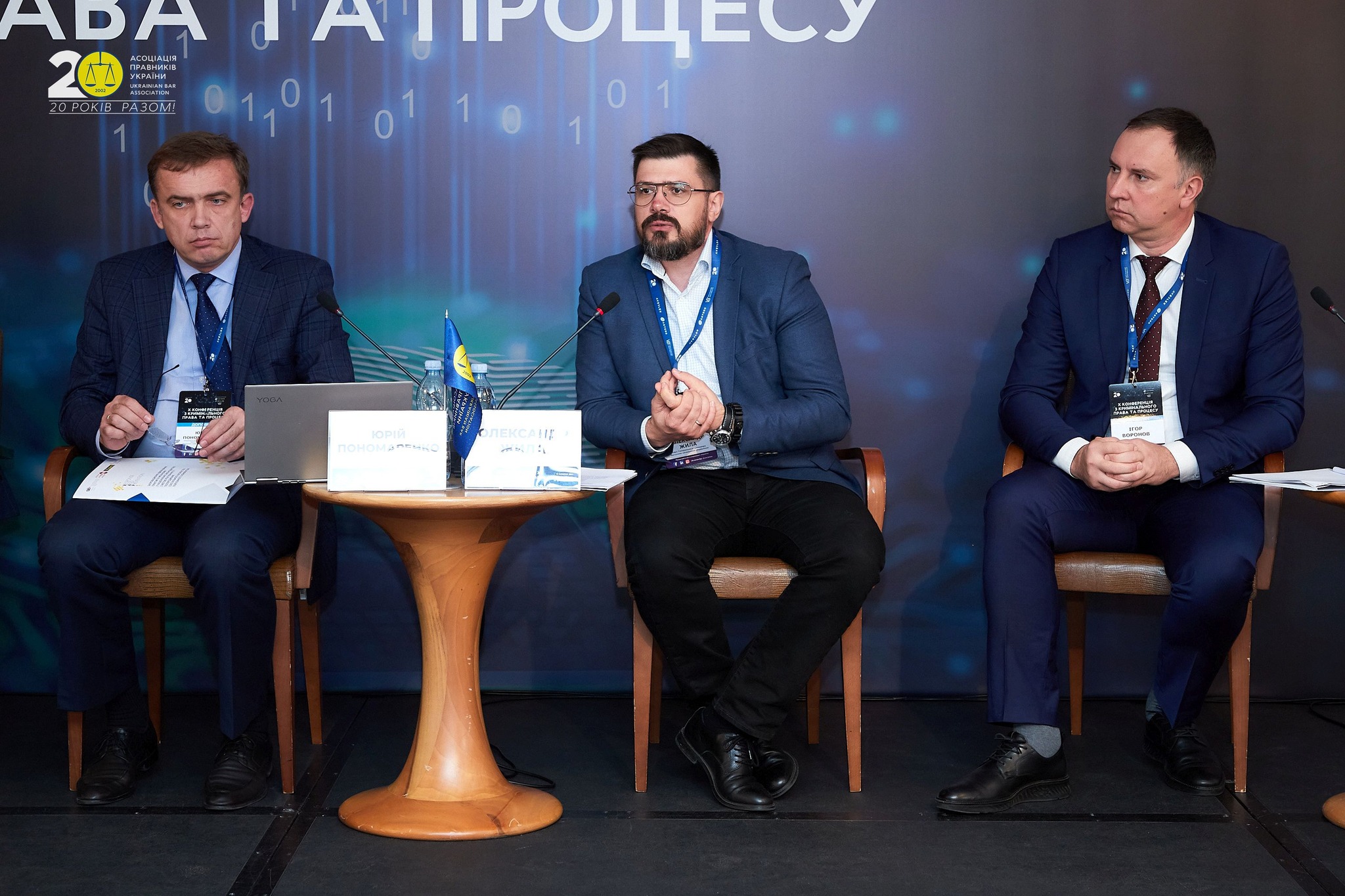
Oleksandr Zhyla, Deputy Head of the Department of the Prosecutor General's Office, talked about the investigation of criminal cases related to businesses with Russian elements in conditions of martial law. He discussed the problems in this area and possible solutions. As of now, about 1200 cases related to sanctioned individuals have been registered, and almost half of them have already been sent to court.
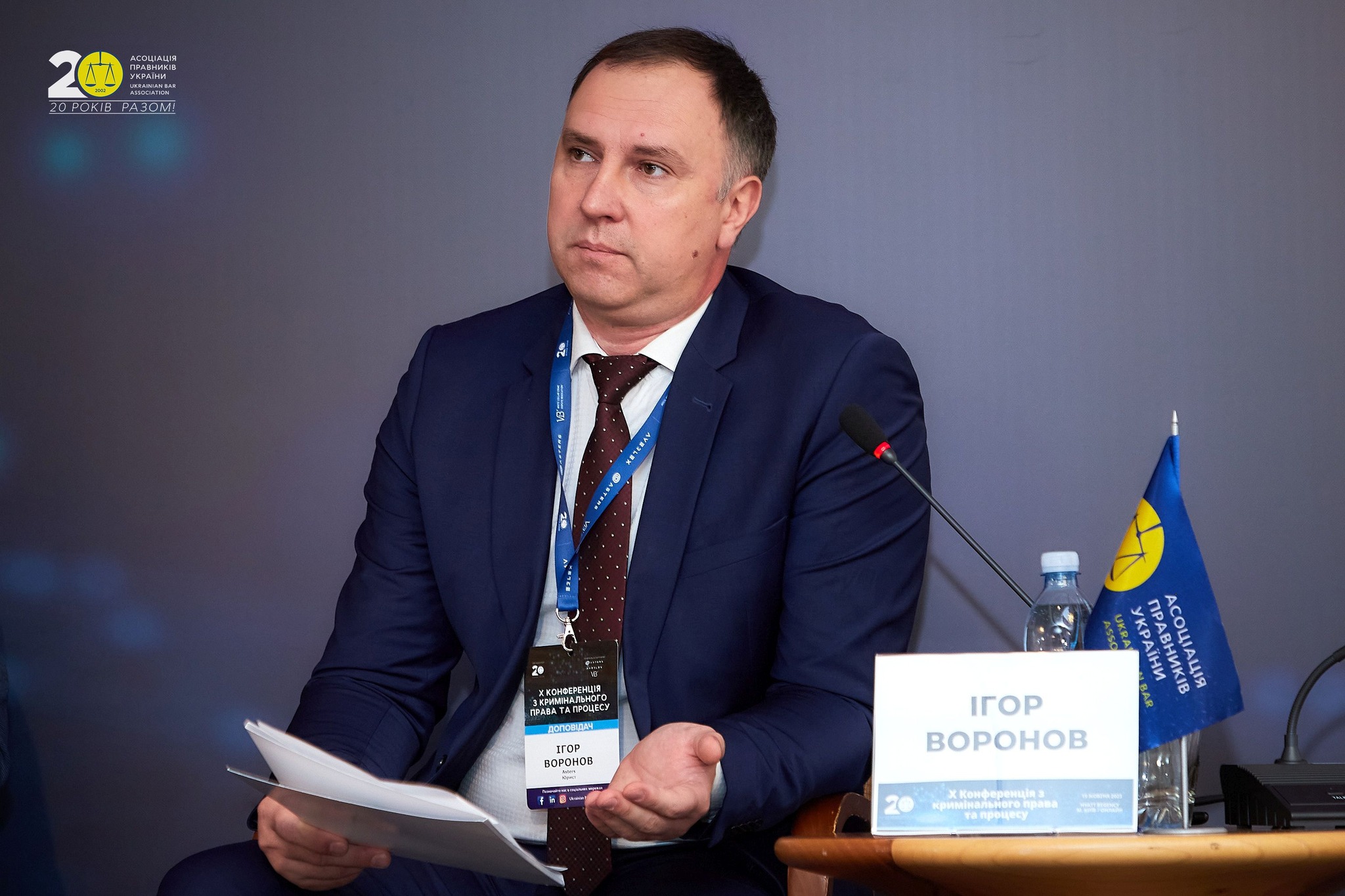
Igor Voronov, Lawyer at Asters Law Firm, Doctor of Legal Sciences, a member of the specialized academic council, presented the attorney's perspective on the violation of the right to defense by the Higher Anti-Corruption Court. According to him, after 4 years of full-fledged work, there are already certain negative trends in the activities of the court, and there are cases of violating procedural law. Among the negative manifestations, Voronov mentioned a certain bias of the court in favor of the National Anti-Corruption Bureau of Ukraine during the consideration of cases.
After the first session, an open discussion titled "White-Collar Crime Practice: Trials of War. Threats, Challenges, Opportunities, and Perspectives" took place, moderated by Denys Bugay, Partner-founder of VB PARTNERS Law Firm.

Mr. Bugay presented the results of an online survey of conference participants that took place during the first session. Here are some of the results:
- Key risks identified by 22 respondents in the White-Collar Crime (WCC) practice today include pressure from authorities on the court, "telephone justice," self-censorship by the courts. 16 respondents mentioned societal demand for quick "convictions," 13 mentioned a decrease in the "quality" of cases handled by NABU / Specialized Anti-Corruption Prosecutor's Office (quantity over substance), 12 highlighted a high level of corruption in the prosecution, State Bureau of Investigation, and Bureau of Economic Security. Other issues mentioned were a deficit of qualified personnel, the association of lawyers with clients, and the narrowing of defense rights due to changes in the Criminal Procedure Code.
- 31 respondents feel a deficit of professional colleagues in the market, 14 see no problems with a lack of personnel, and 6 believe there is no deficit but salaries have significantly increased.
- The majority of respondents acknowledged that the volume of work/orders has increased over the past year.
- 20 respondents stated that the size of fees in the field has remained unchanged, 15 noted a growth in fees only in certain categories of cases, 8 mentioned a significant increase in fees, and 7 reported a decrease.
- 35 respondents believe that the court is not ready to be independent, prioritizing the prosecution. 11 persons think that the right to defense is not relevant at this time, and quick results are needed in wartime.
- 33 respondents said they feel increased pressure on businesses, 24 see no safeguards against law enforcement abuse, and 23 believe that the prosecution does not provide proper procedural guidance.

Denys Bugay also discussed perspectives in the WCC practice, including the increased volume of practice with a decrease in quality, a growing trend in the monetary equivalent of the practice, vacant positions due to the departure of many lawyers abroad, the potential workload from anti-corruption requests, the revival and rebuilding as “corrupt ‘Klondike’ and ‘El Dorado”, military proceedings, a new market in military procurement, arms production, and import/export, and new niches like sanctions and asset nationalization.
The trends for the future of WCC practice, according to Mr. Bugay, include consolidation of the practice, requiring more lawyers and a need for a deep understanding of the corporate world.

The second session of the conference was titled "Anti-Corruption Panel," moderated by Olga Prosyanyuk, Managing Partner at AVER LEX Law Firm. Participants discussed various issues related to anticorruption efforts.
One key topic was the criteria for determining the size of bail in corruption criminal proceedings. Vitalii Dubas, a judge of the Higher Anti-Corruption Court, emphasized that the size of bail should be determined by the degree of trust, where the prospect of losing bail would be a sufficient deterrent for the suspect. He also highlighted that bail should only ensure the proper conduct of the investigation, and its size should not have a direct relation to the probable damages alleged to the suspect.
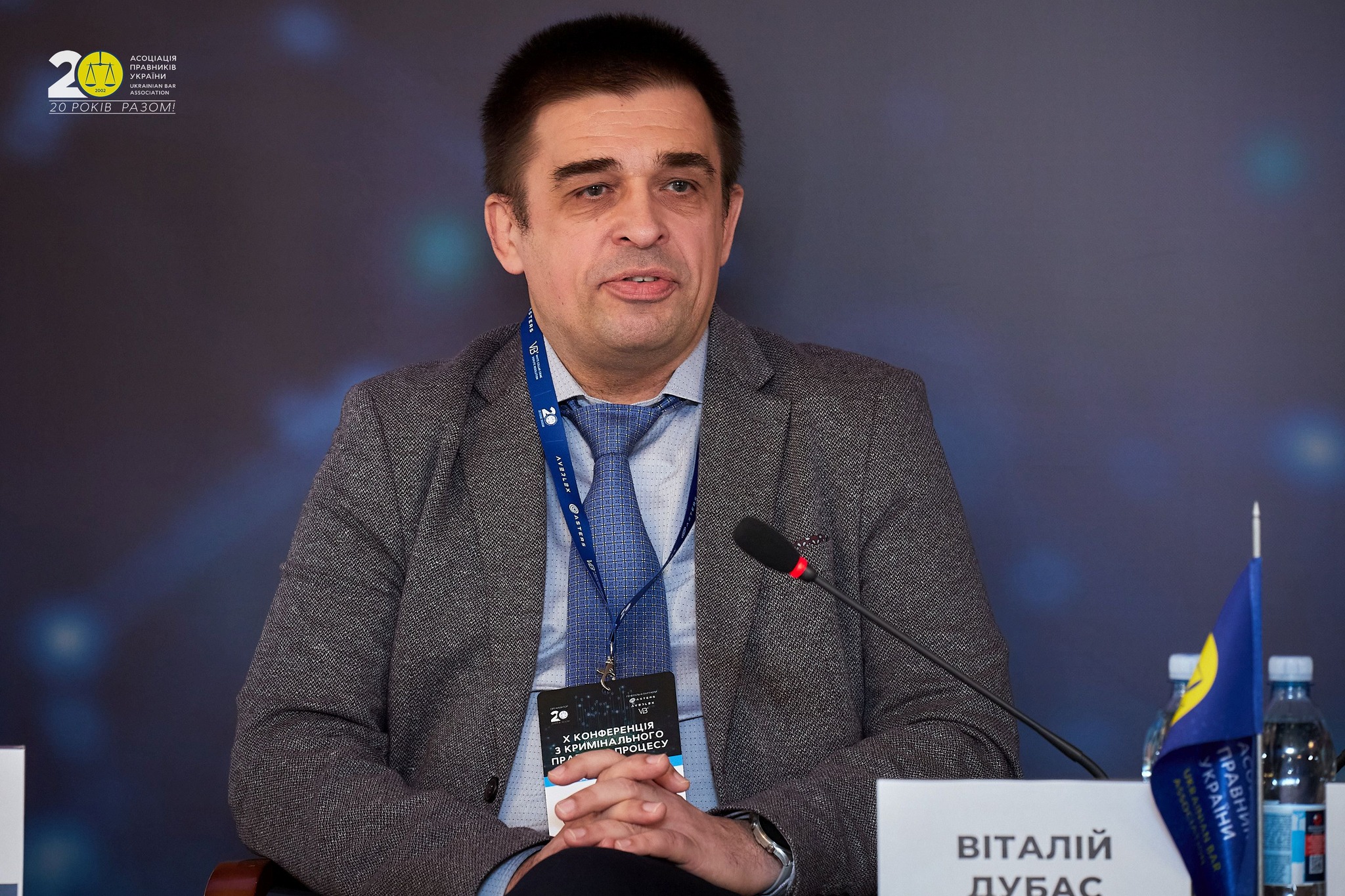
Andrii Nikiforov, a judge-speaker of the Appeals Chamber of the Higher Anti-Corruption Court, mentioned the difficulty in determining the limit when bail stops ensuring procedural behavior of the suspect and turns into a "fee" for their release, after which the suspect disappears from the sight of the investigation.
Denys Shkarovsky, Partner at VB PARTNERS Law Firm, suggested that the Higher Anti-Corruption Court should act more frequently as an arbitrator in criminal proceedings, objectively evaluating evidence and arguments from both sides.
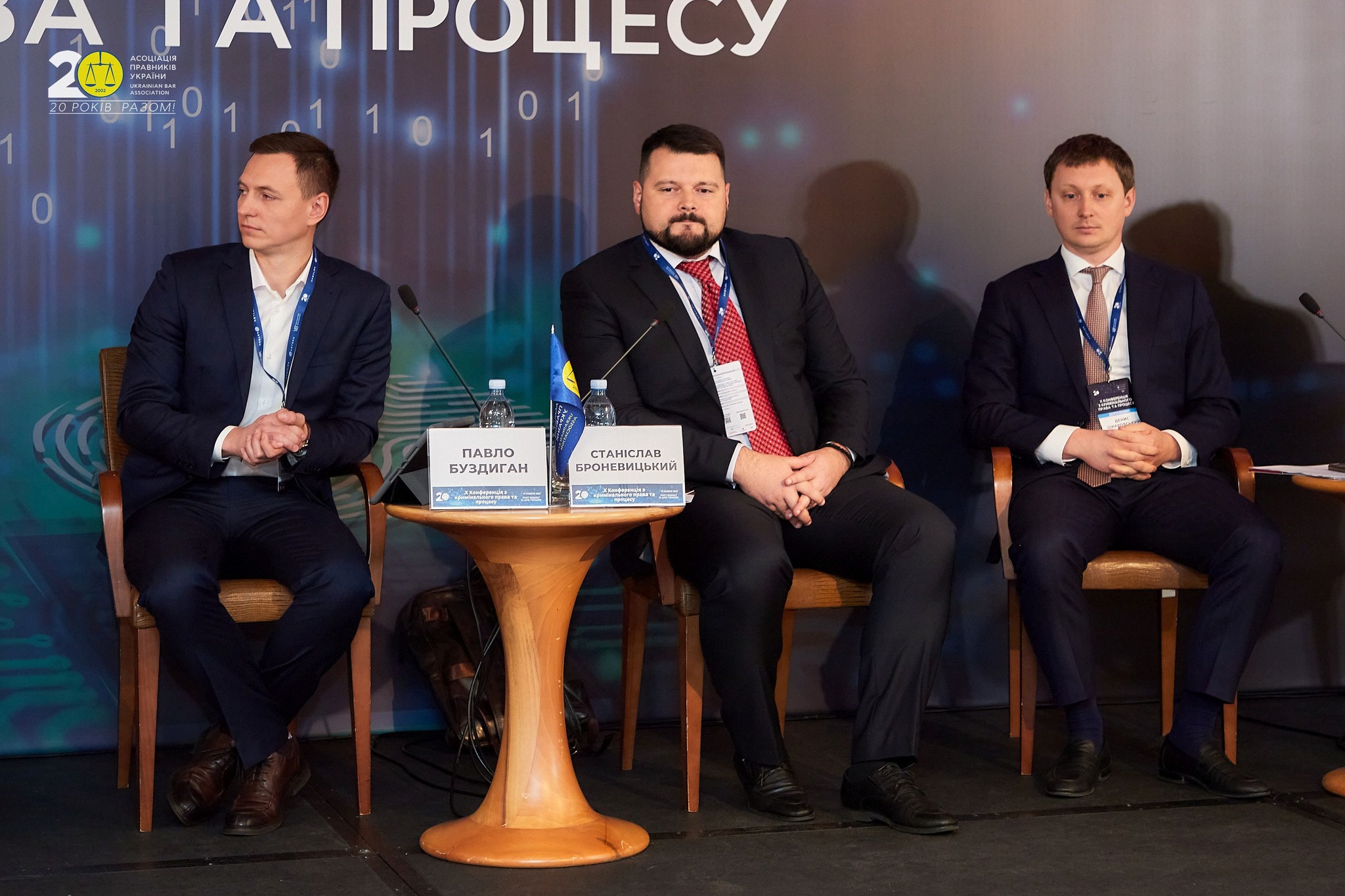
Other experts in the session included Pavlo Buzdyhan, Deputy Head of the Detective Department at the National Anti-Corruption Bureau of Ukraine; Stanislav Bronevytskyi, prosecutor at the Specialized Anti-Corruption Prosecutor's Office of the Prosecutor General's Office; and Artem Krykun-Trush, Managing Partner at Rostrum Law Firm.
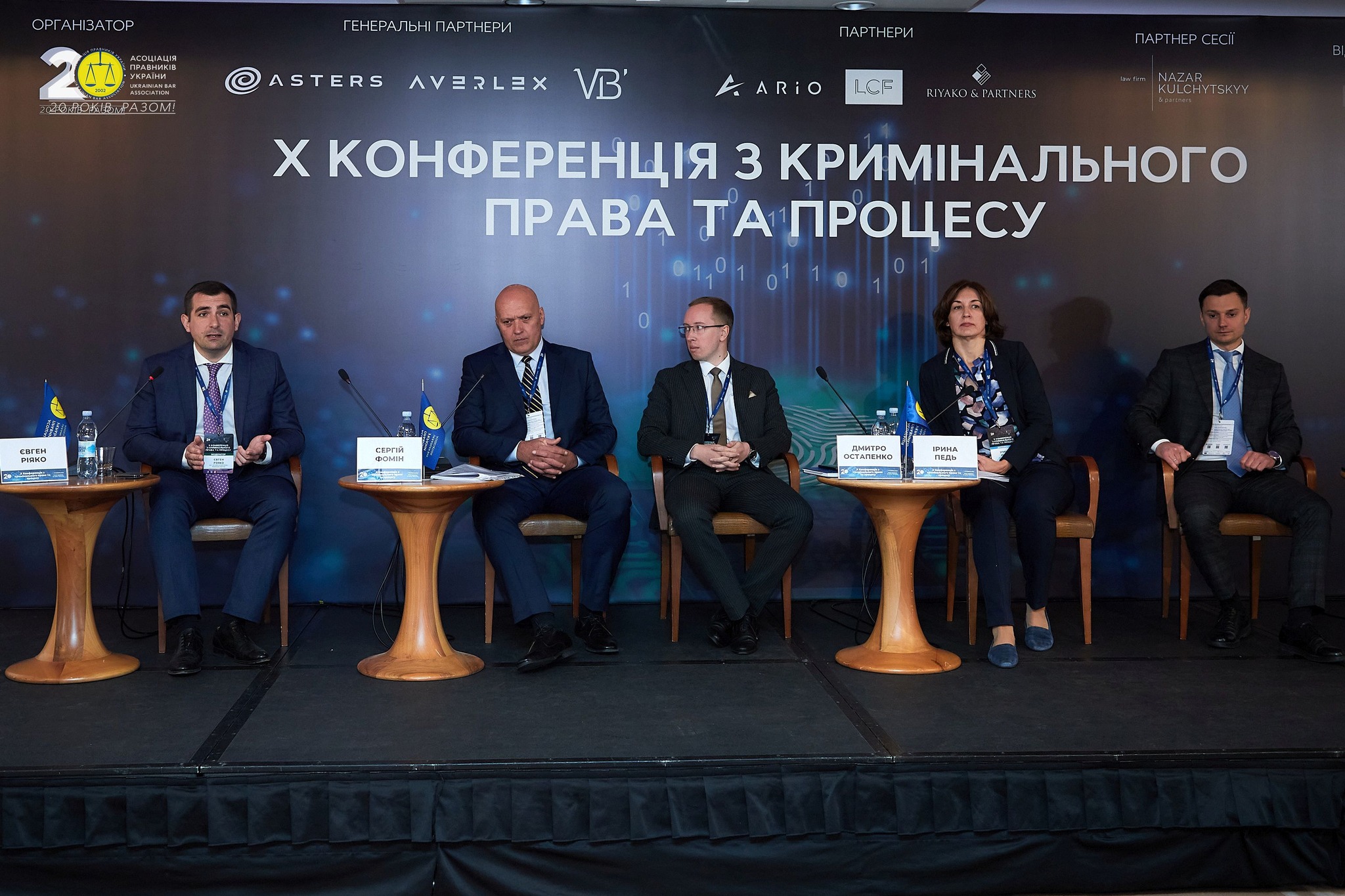
The topic of the third session of the conference was titled "Defense in White-Collar Crime Cases: Issues and Forecasts." The session was moderated by Yevhen Riyako, Managing Partner at RIYAKO & PARTNERS Law Firm. Participants in the discussion were invited to discuss the following issues:
- Approaches to determining the size of bail in cases involving damages.
- Determination of the size of lost profits in criminal proceedings. Is it "appropriate" for Article 364 of the Criminal Code of Ukraine?
- Issues related to expert examinations for determining the size of damages.
- Prosecution of "white-collar" individuals under "war" articles of the Criminal Code of Ukraine.
- Armed aggression as a catalyst for international cooperation among law enforcement. New opportunities for national tools of Mutual Legal Assistance (MLA).
- Current issues related to the application of norms of criminal and criminal procedural law in WCC cases.
In particular, Viacheslav Navrotskyi, Doctor of Law, Corresponding Member of the National Academy of Legal Sciences of Ukraine, focused on the topic of lost profits in criminal proceedings. He noted that this issue arises in the context of establishing the presence of property damage. The widespread position is the necessity of considering lost profits as property damage.
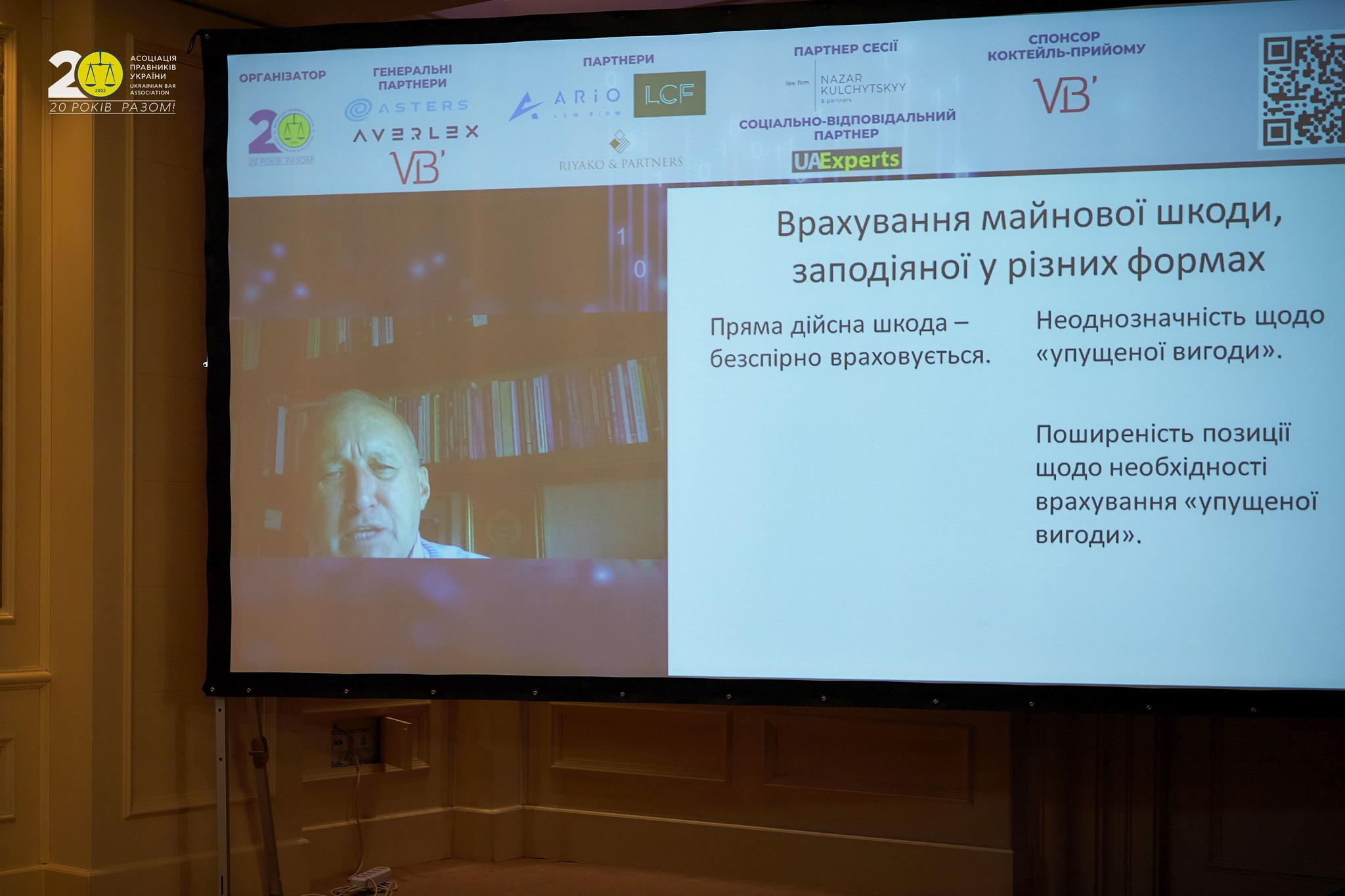
Mr. Navrotskyi provided examples where the Supreme Court interprets lost profits as criminal consequences. On the other hand, the expert considered the concept of lost profits from the perspective of the civil law concept of damage (Article 22 of the Civil Code of Ukraine). He also touched on the appropriateness of "transferring" norms of civil law to criminal law.
Viacheslav Navrotskyi concluded that the failure to receive income cannot be considered a consequence of a criminal offense; instead, it may be the subject of consideration within the framework of a civil lawsuit.
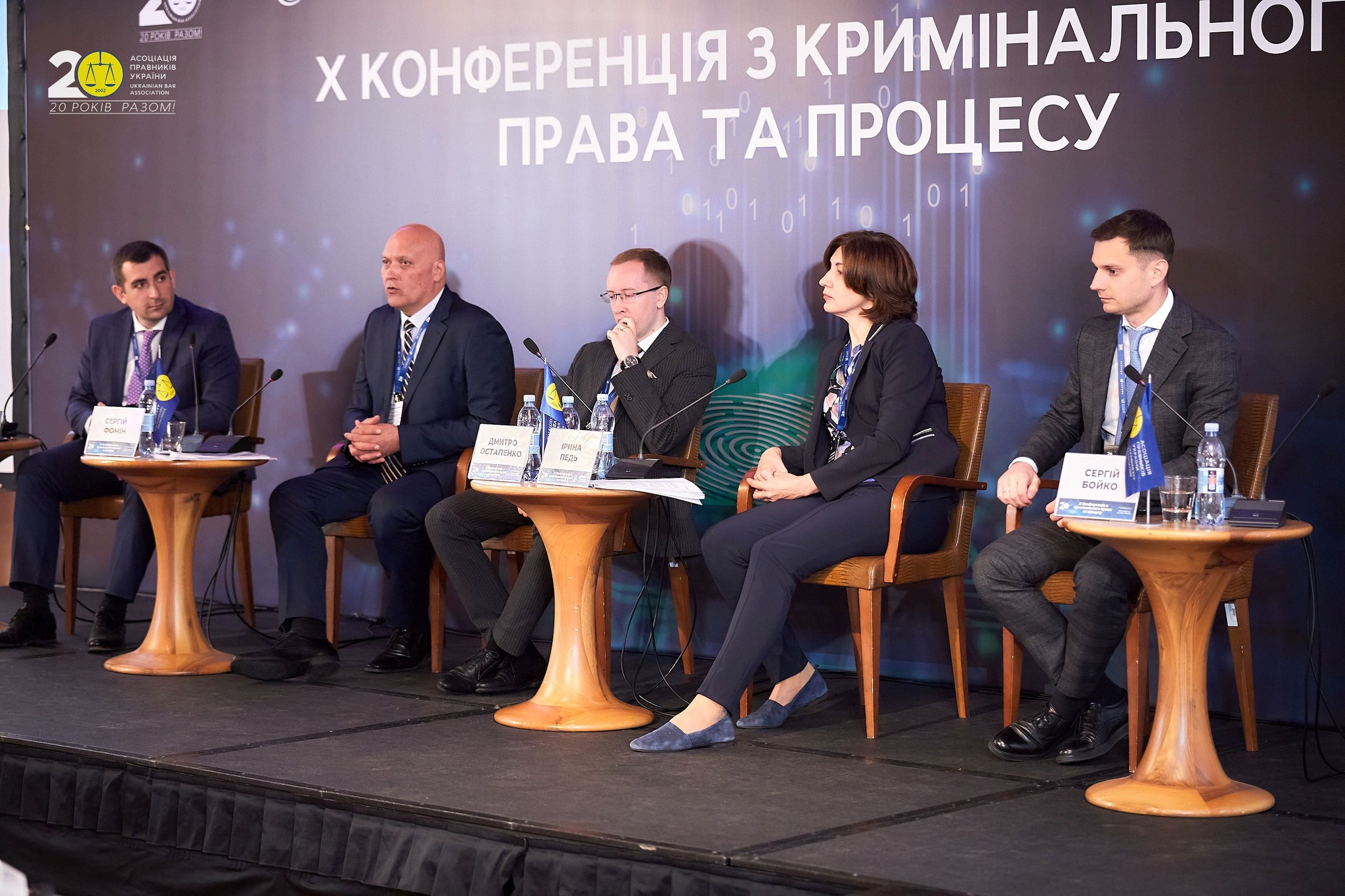
The discussion also involved Sergiy Fomin, Judge of the Cassation Criminal Court within the Supreme Court, Sergiy Boyko, Advisor at VB PARTNERS Law Firm, Iryna Ped, Managing Partner at S&D Expert Group, and Dmytro Ostapenko, Head of the Criminal Law Practice at Krolevetskyi & Partners Law Firm.
The fourth session of the conference was dedicated to the topic of military and war crimes. The session was moderated by Yevhen Hrushovets, Partner at Ario Law Firm.
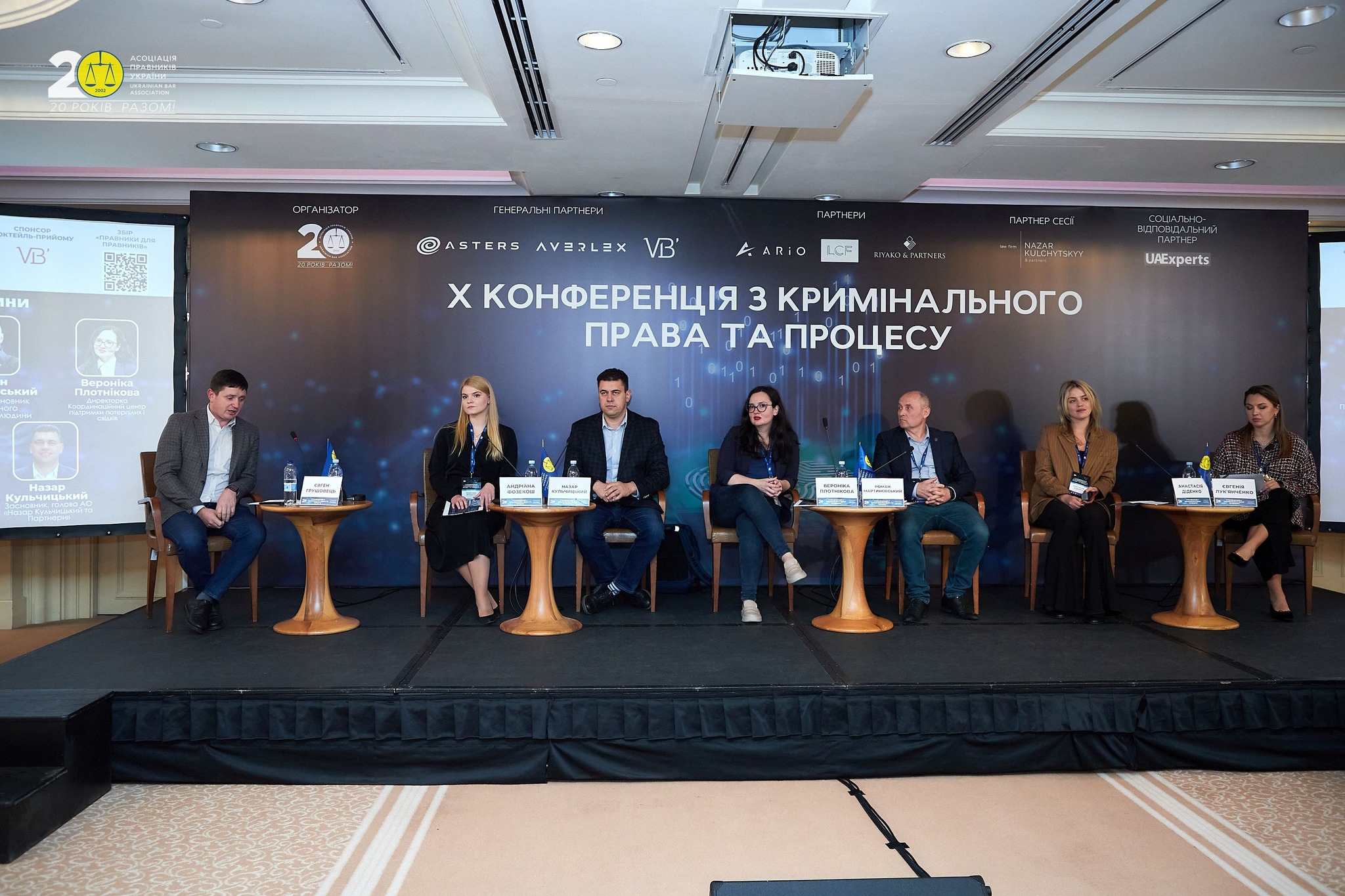
The focus of the session included the following issues:
- Defense of judges, lawyers, prosecutors involved in the consideration and investigation of war crimes.
- Protection of the interests of Ukrainian prisoners of war.
- Confiscation of Russian assets and protection of the rights of other co-owners.
- Conflict-related sexual violence (CRSV): response mechanisms and challenges.
- Ukraine's experience in responding to and combating cases of CRSV.
Andriana Fozekosh, Head of the Military Servicemen Protection Practice at AVER LEX Law Firm, attorney, noted that the most common request for legal assistance to her firm is related to assisting the families of captured and missing military personnel.
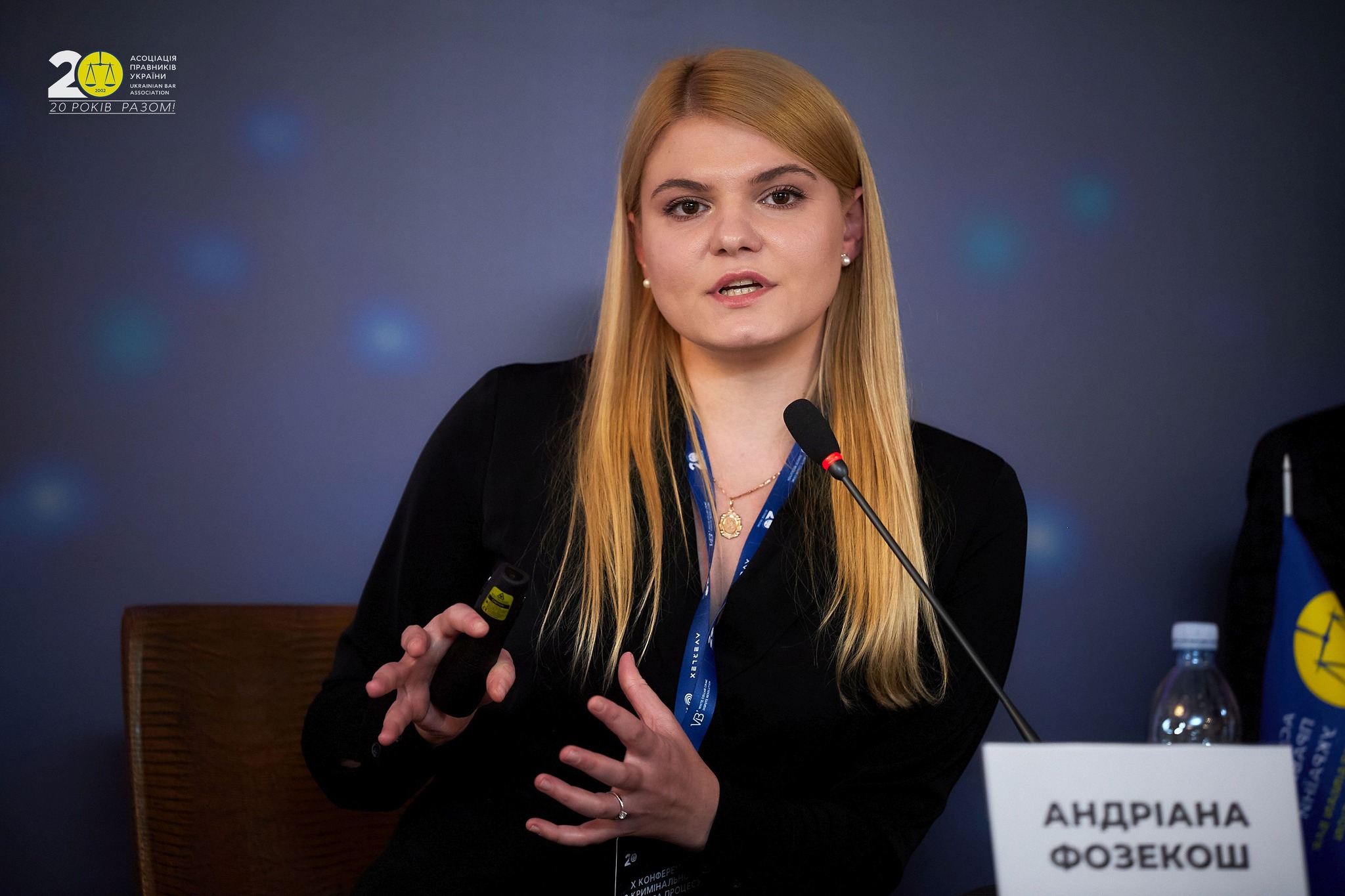
Ms. Fozekosh also outlined the existing problems in criminal proceedings against military personnel:
- The standard of evidence during official investigations is significantly lower compared to criminal proceedings.
- Negative consequences for the military and their families based on extracts from the Unified register of pre-trial investigations.
- Overload of investigators.
- Improper implementation of the tasks of criminal proceedings.
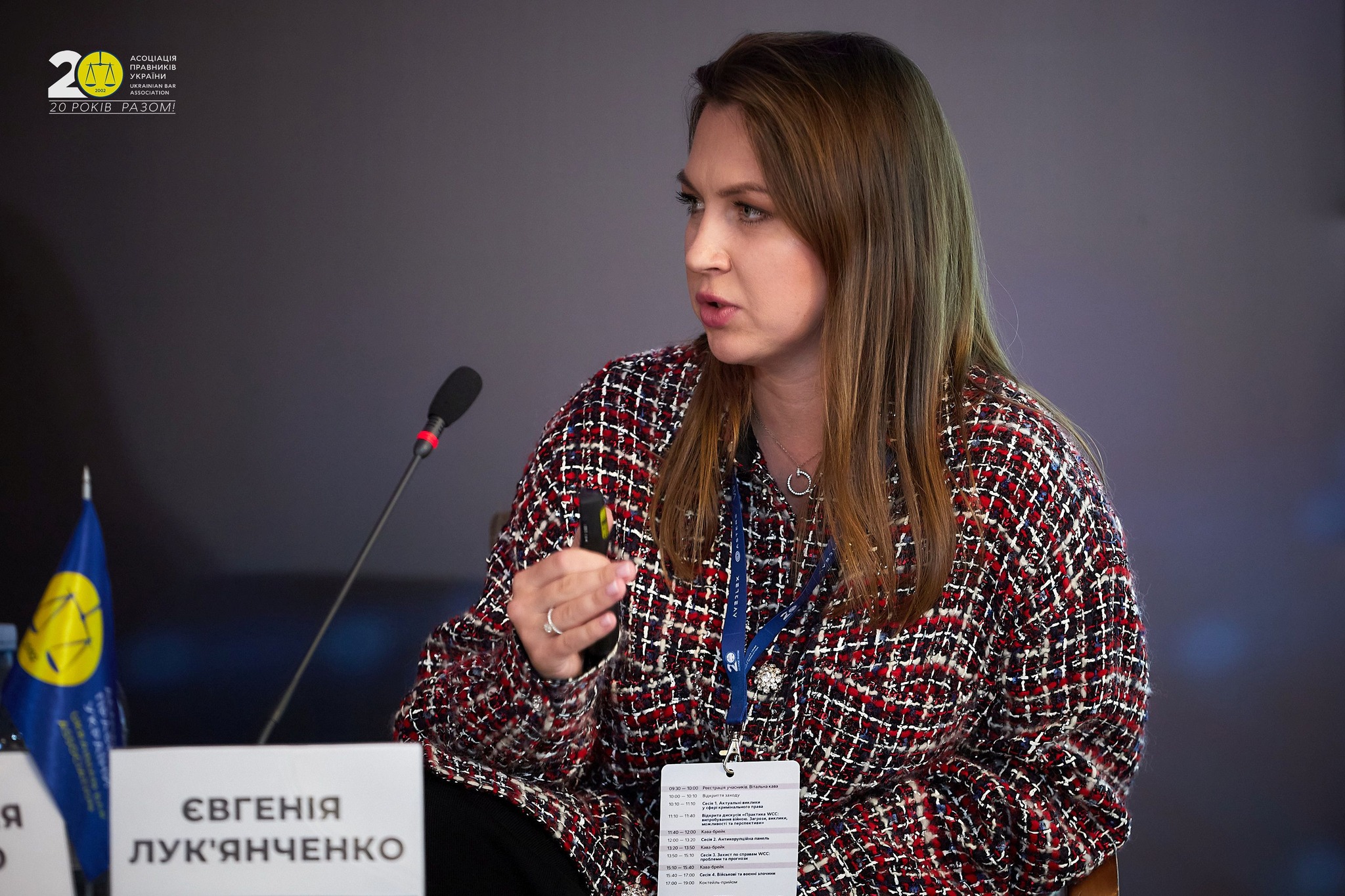
Yevheniia Lukyanchenko, Advisor to the Vice Prime Minister on European and Euro-Atlantic Integration, scientific expert at NGO UA Experts, reported that as of today, 235 criminal proceedings have been registered regarding CRSV. She emphasized that this is only officially confirmed information, and it is evident that the actual number is much higher. However, according to Ms. Lukyanchenko, the government deliberately focuses on the above-mentioned number of proceedings to avoid creating grounds for manipulation by Russia.
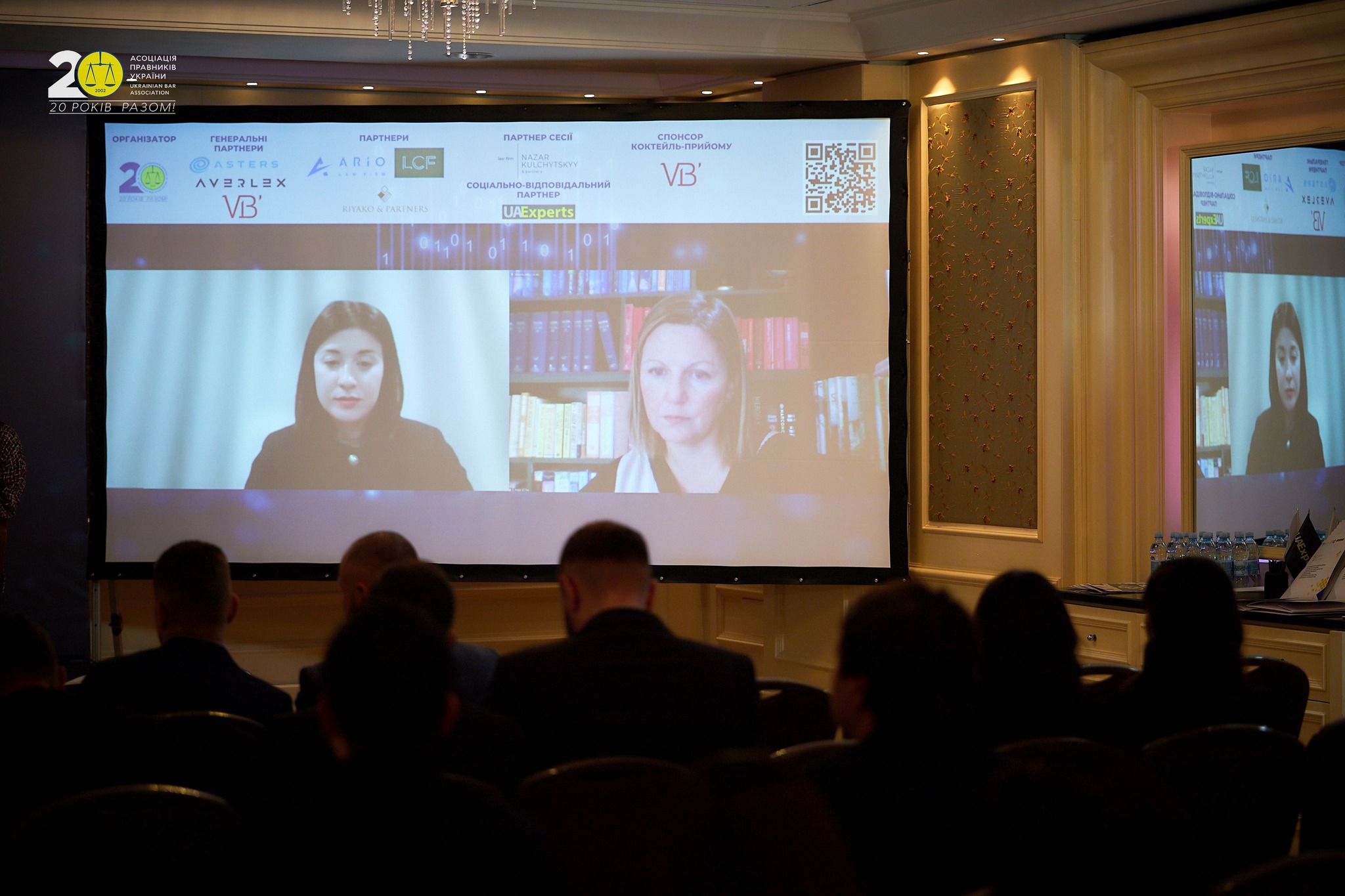
Experts of the session also included Uliana Pashynna, Legal Advisor of the USAID Justice for All Program, Marie O'Leary, lawyer at the Office of Public Counsel for Victims, International Criminal Court, Roman Martynovskyi, lawyer, founder of the Regional Center for Human Rights, Veronika Plotnikova, Director of the Coordination Center for the Support of Victims and Witnesses, Anastasiia Didenko, Senior Lawyer in the Criminal Law Practice at LCF Law Group, Nazar Kulchytskyy, founder and chairman at Nazar Kulchytskyy & Partners Law Firm.
You can find more photos from the event at this link.
